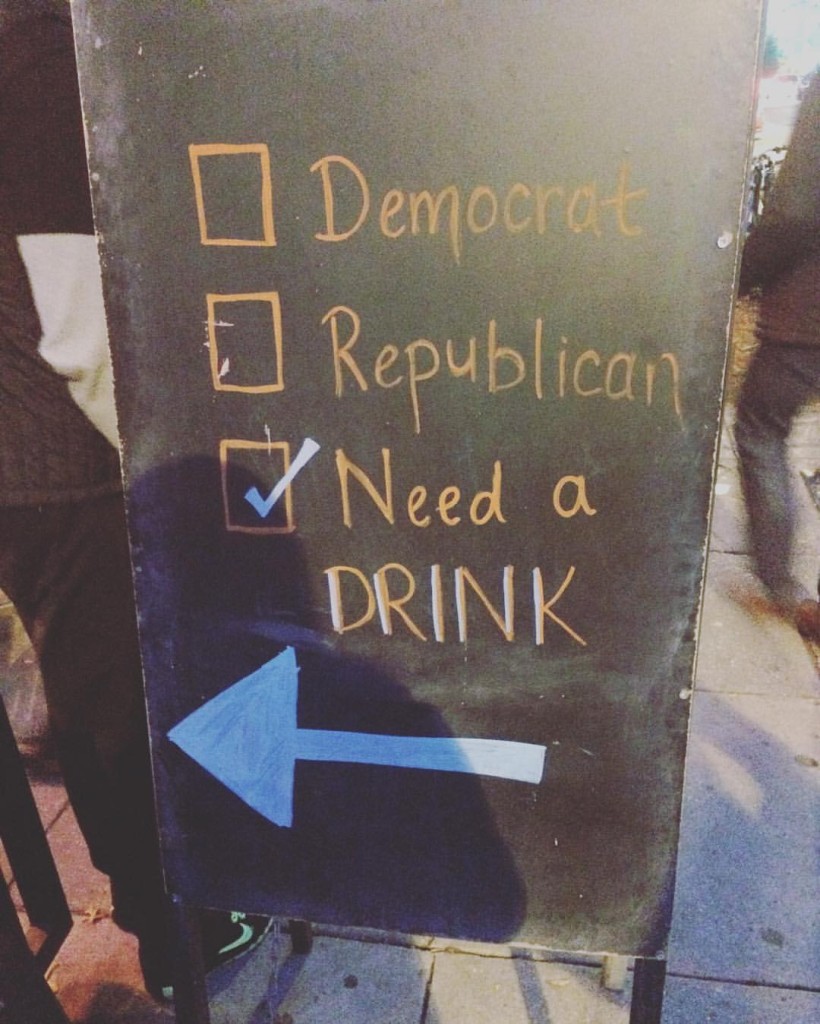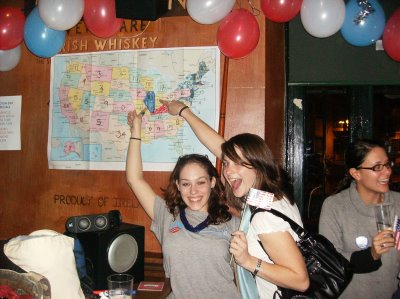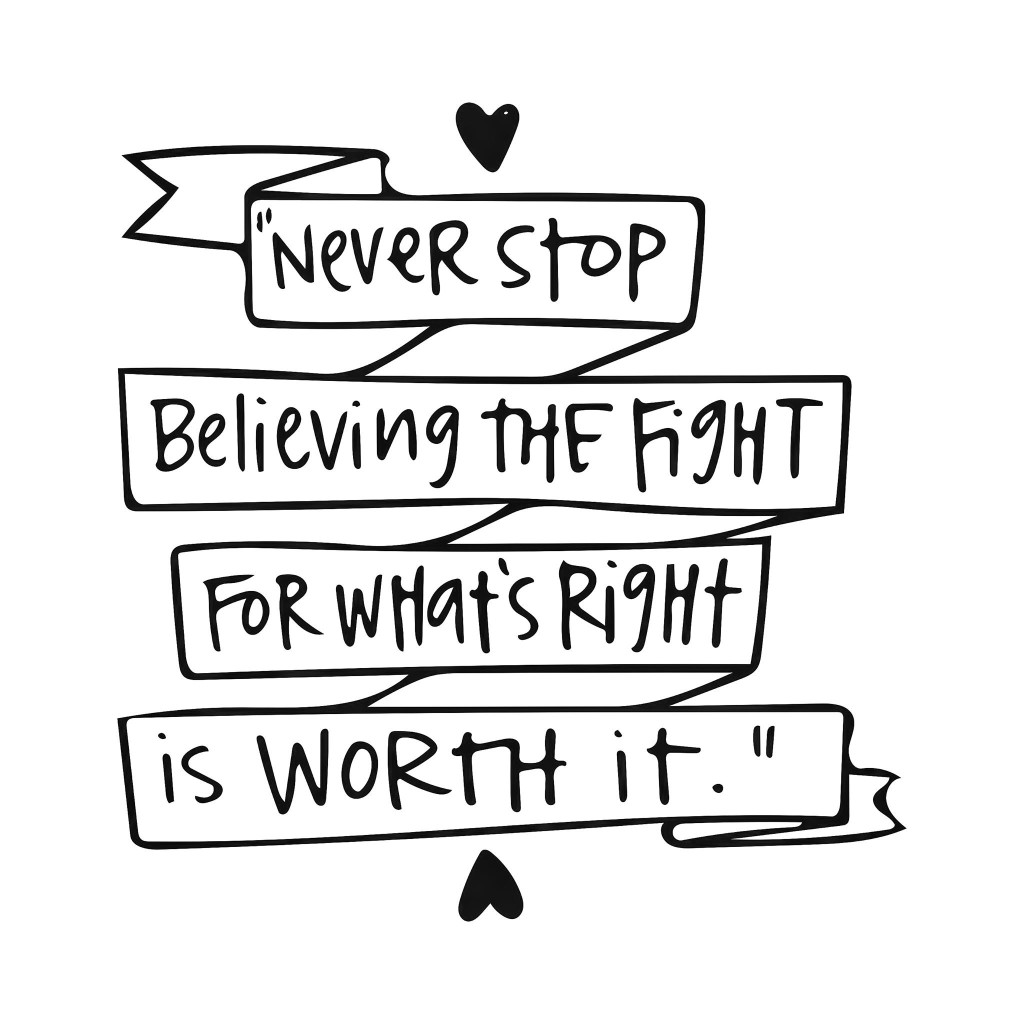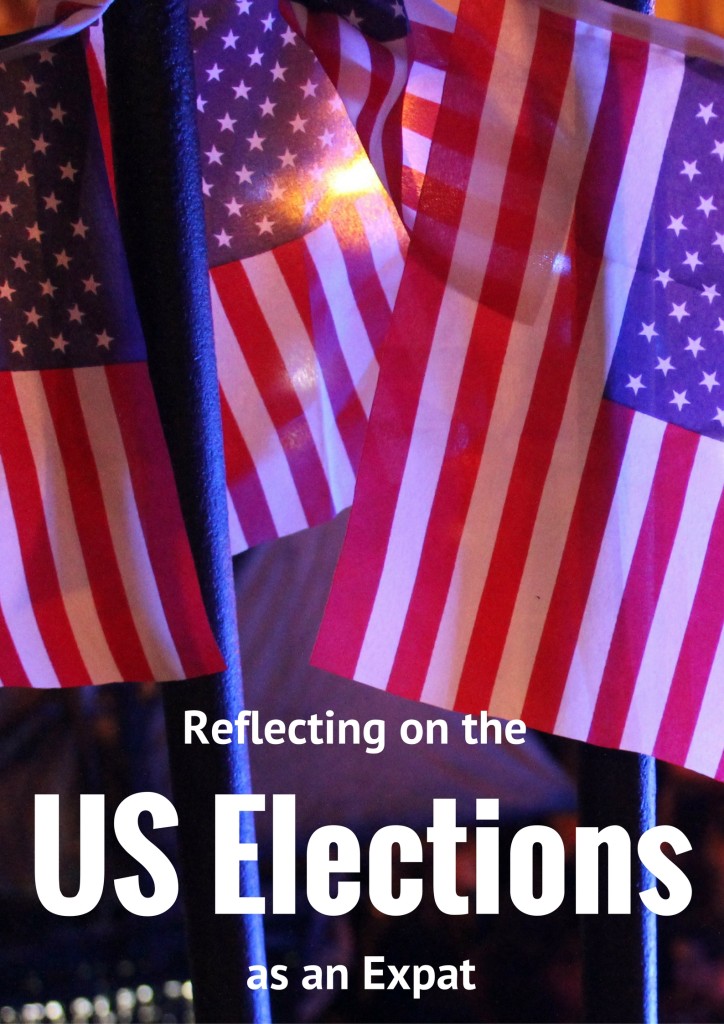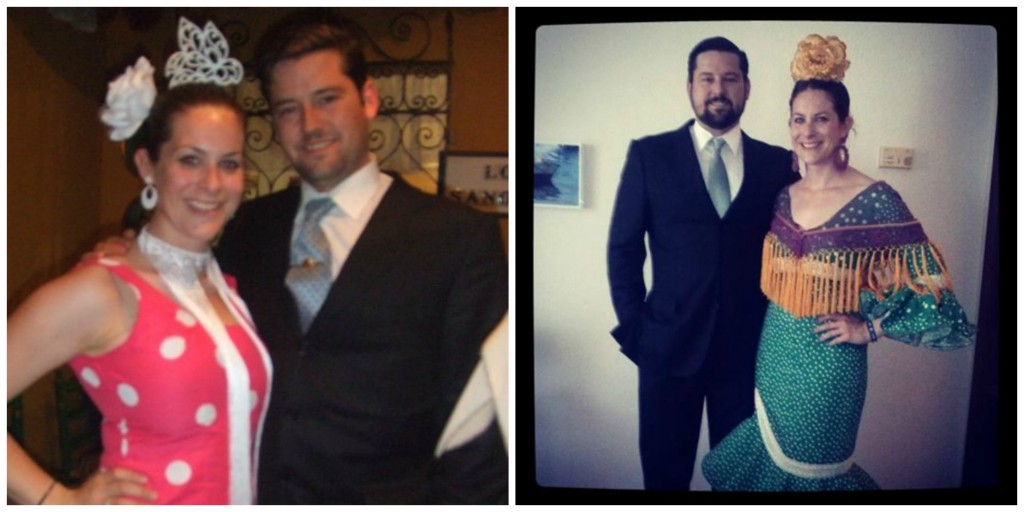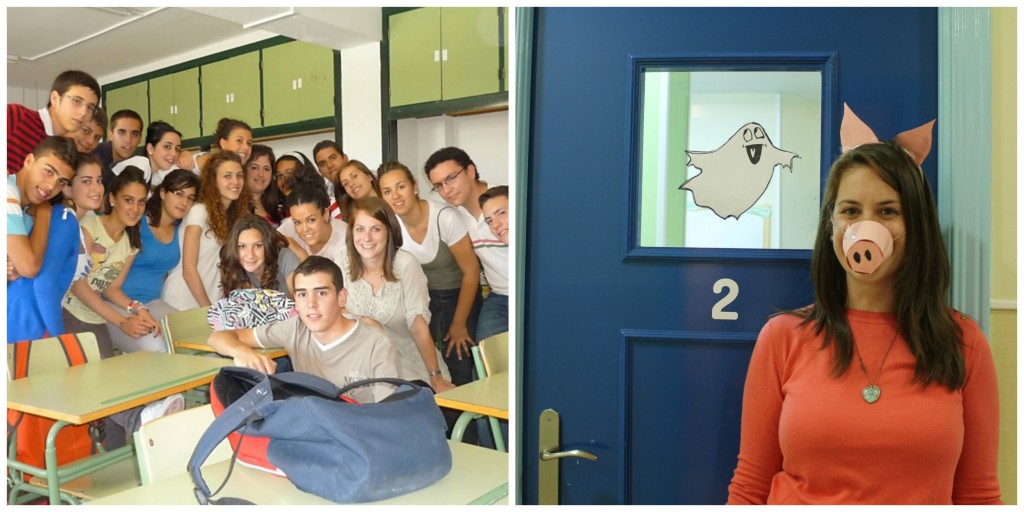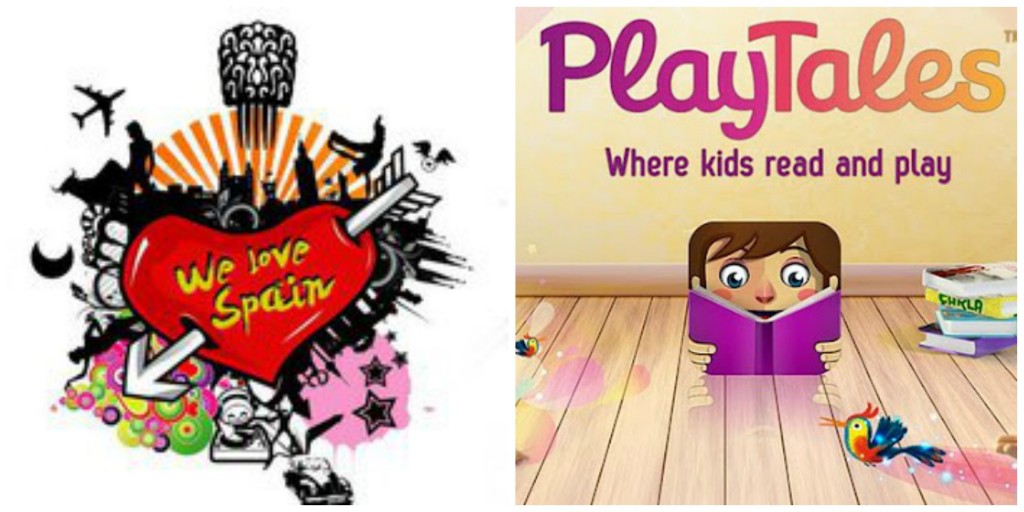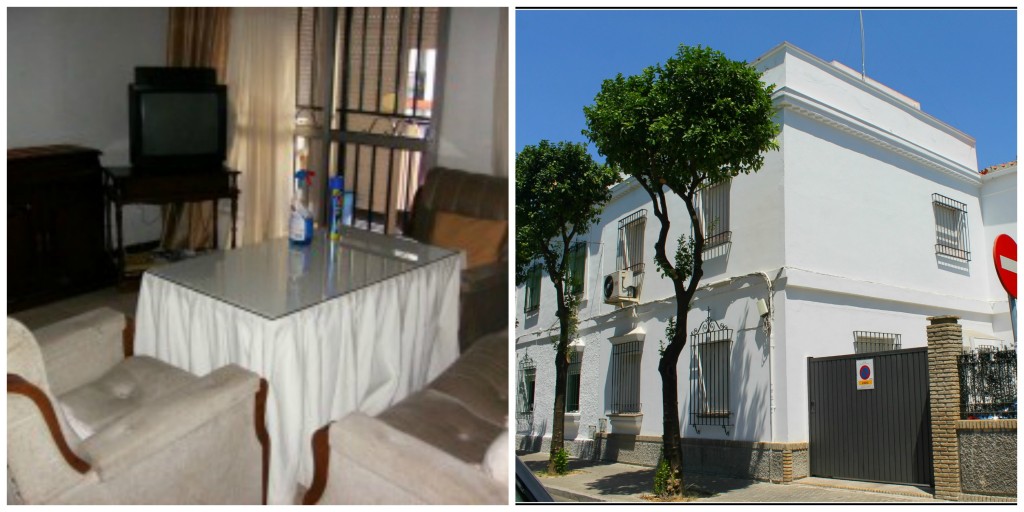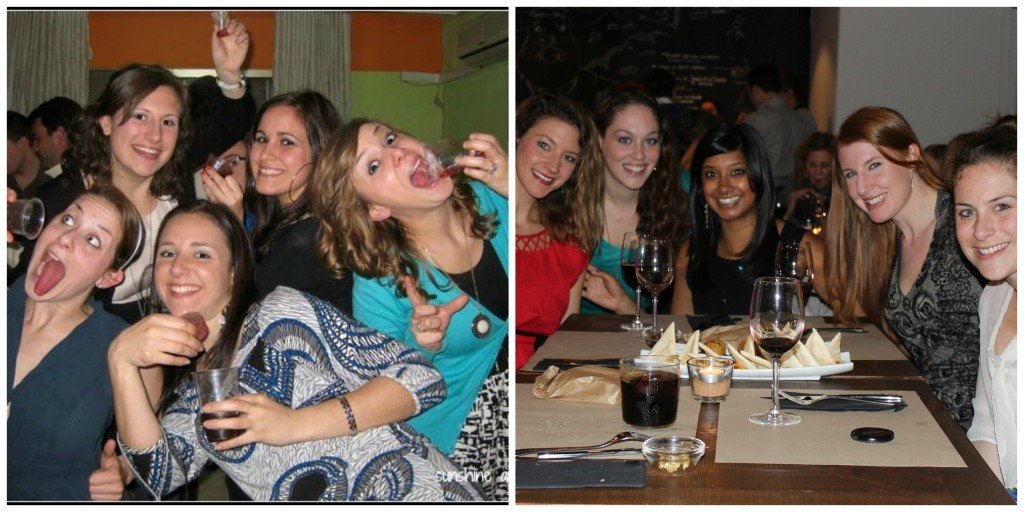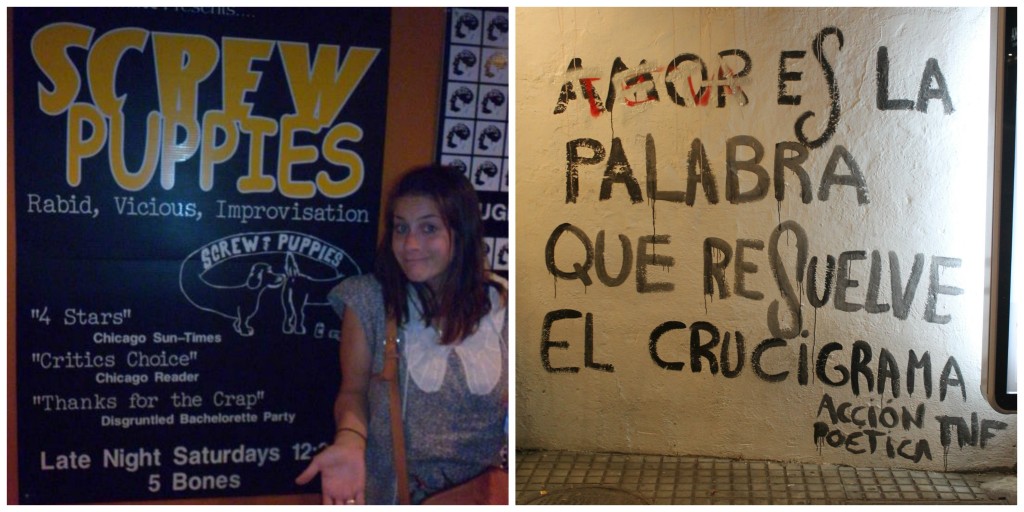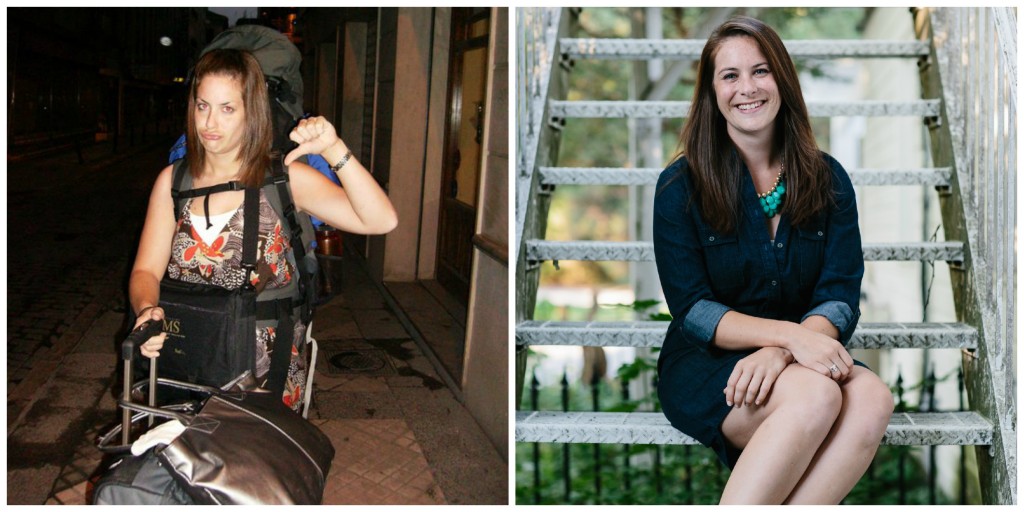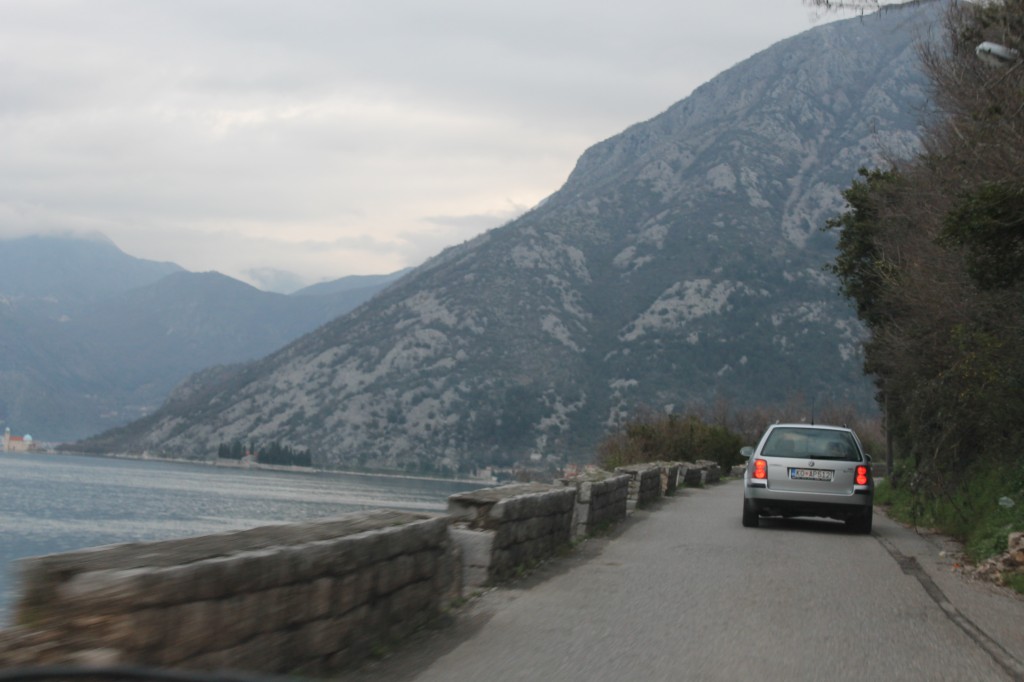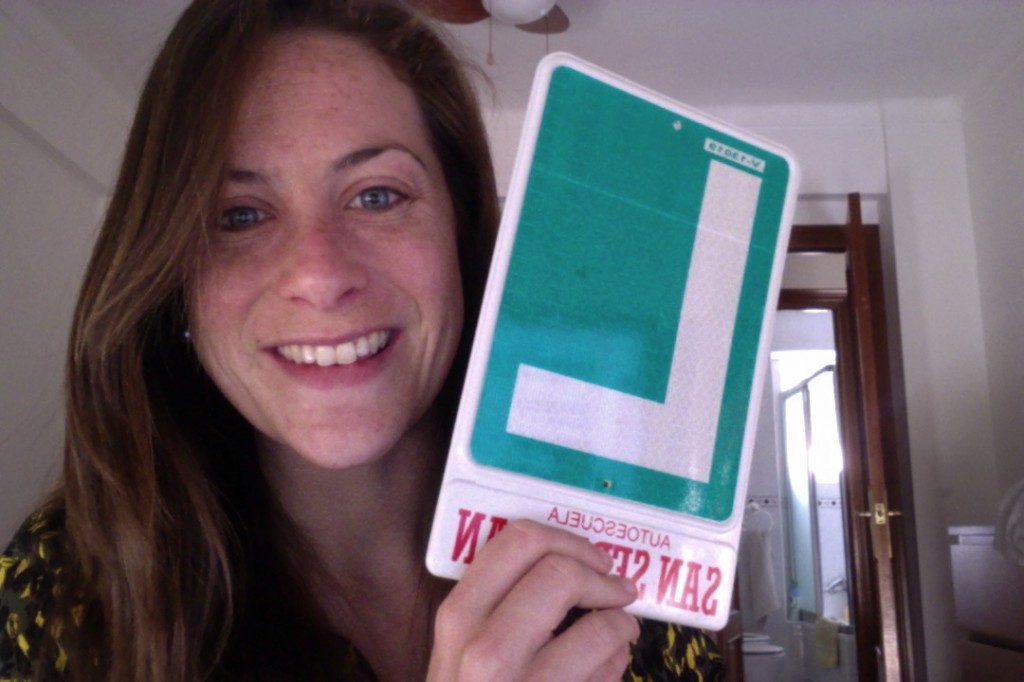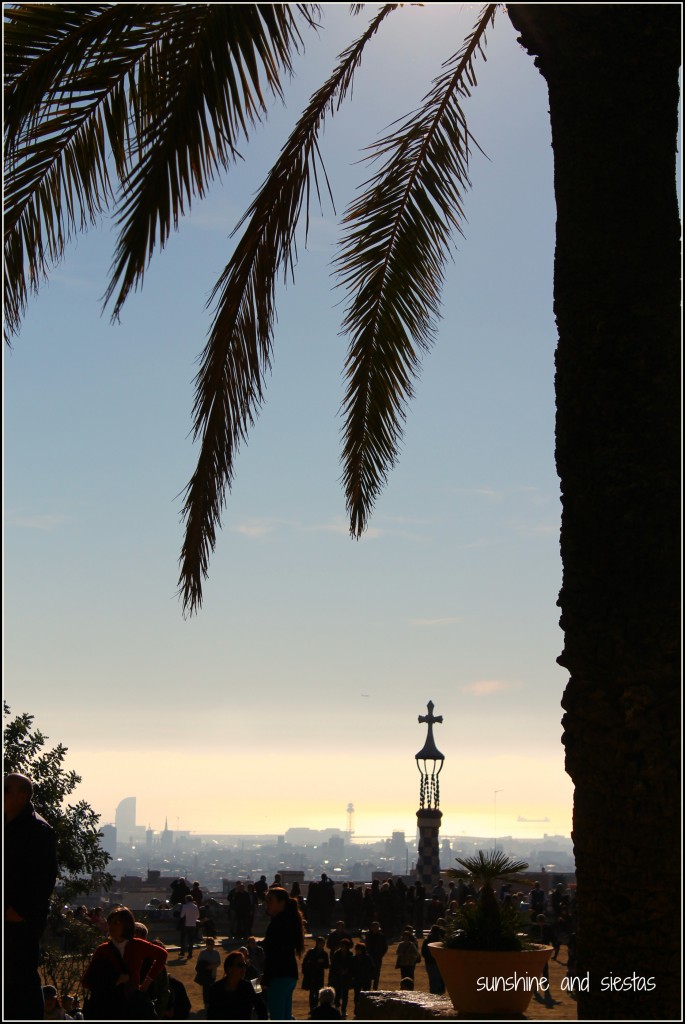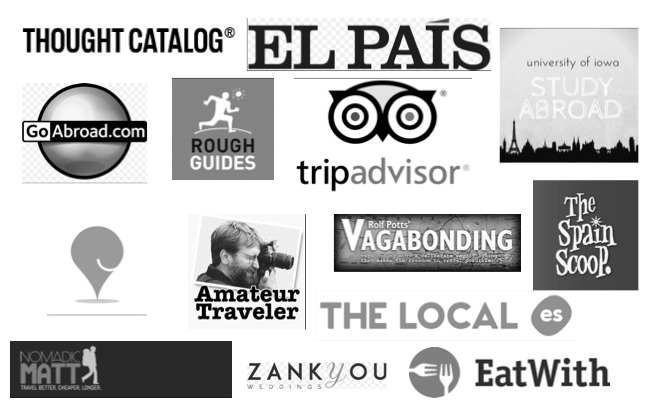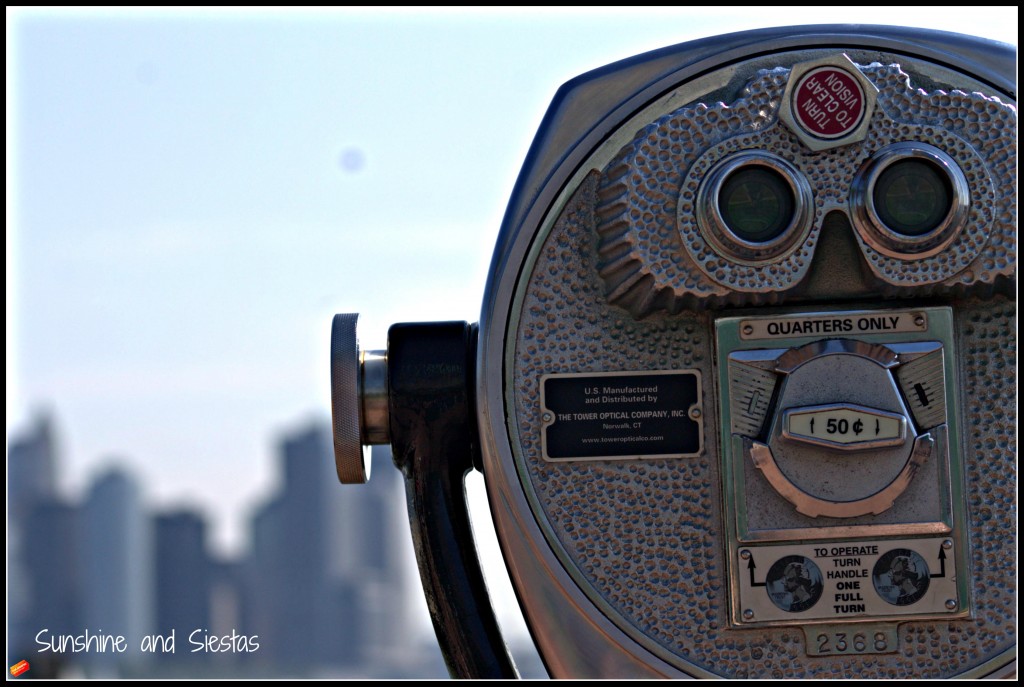
I have lived in Spain for eleven years – we are now in the double digits. The only things I’ve stuck to for longer have been gymnastics (12 years) and driving a car (17 years). As September comes and goes each year, the nostalgia kicks in as I remember lugging two overstuffed suitcases from Chicago to Madrid to Granada to Triana. What a long, strange, tapa-filled journey it’s been.
As I approached my ten year Spaniversary, I had planned to write a tongue-in-cheek look at some of the things that make me scratch my head about Spain, weaving in the acclamation process that took a good, darn year. But, parenthood and a busy work schedule meant that that post is still in drafts (I’ll get there by my 20th Spaniversary, promise).
Despite slagging blog and social media activity, I somehow still have page views, followers of my ho-hum #momlife and emails from readers and people who find me organically through Google. Don’t let the out of office message fool you – I love reading them and I appreciate them.
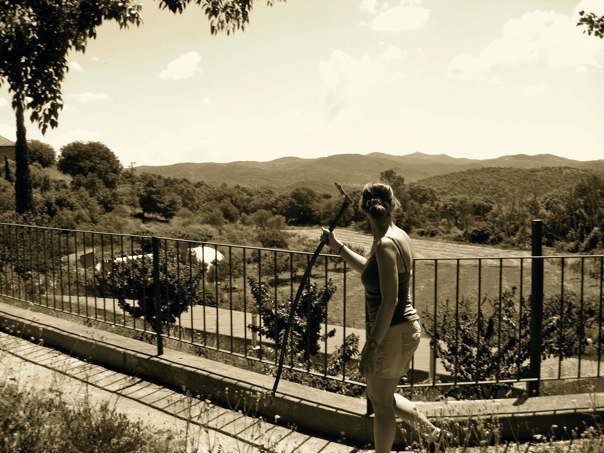
I always think, “I can should turn this question into a blog post.” But rather than eleven separate posts, I did a non-scientific study of what you guys emailed and Facebook messaged me about to celebrate 11 years of Spanish red tape and all that comes with it, and I’ve honed down my long-winded emails so that you’re not overwhelmed with word count or information.
Have more questions? Throw ’em in the comments!
How can I legally stay in Spain as an American?
Apart from emails about my favorite places to eat in Seville, I get several emails each week about how to work in Spain and how to legally stay in Spain. Many of you are language assistants or veterans of study abroad in Spain.
I get it. Spain got under my skin, too.
When I was considering making Spain a long-term thing, I looked into just about everything.
Guess what y’all: you have it way easier than I did in 2010.
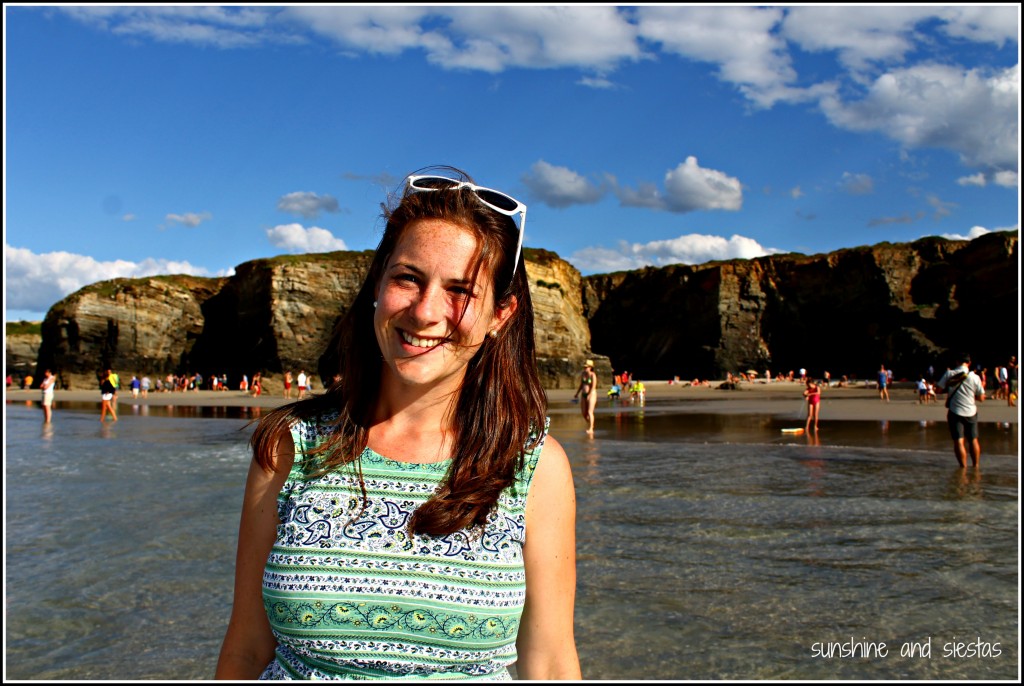
I knew about the loopholes for getting an Irish passport (my dad was not listed on the Foreign Birth Registry, so that was out). There was a difficult-to-attain freelancer visa that I would have had to hustle to get – and I was still on blogger.com. I could get married, but that seemed like an awkward conversation to a Spanish boyfriend who proudly proclaimed he’d never get married (about that…).
I found out that I essentially had three options, apart from the whole ring thing: I could try to find a contract and let my card lapse to modify my status from irregular to a one-year work and residency permit, known as arraigo social; I could start working for a company under the table and rat them out under arraigo laboral, or I could continue on a student visa, obtained through a Master’s program I’d been admitted to, and start earning years towards residency as a civil partner. Modificación and cuenta propia were not buzzwords, nor were they paths to residency in Spain at that time.
So, I set out to try and find a job contract. I spend hours crafting cover letters, hand writing addresses of schools and language academies and licking stamps. Every 10 or 12, I’d reward myself with Arrested Development. I waited for the job offers to roll in but… they did not. In Spain, working legally is a bit of a catch-22: you need a work permit to get a job, and you need a job to get a work permit.
Very Spainful to spend a summer stressing out over staying legal, making money and not having to crawl back to America, tail between your legs.
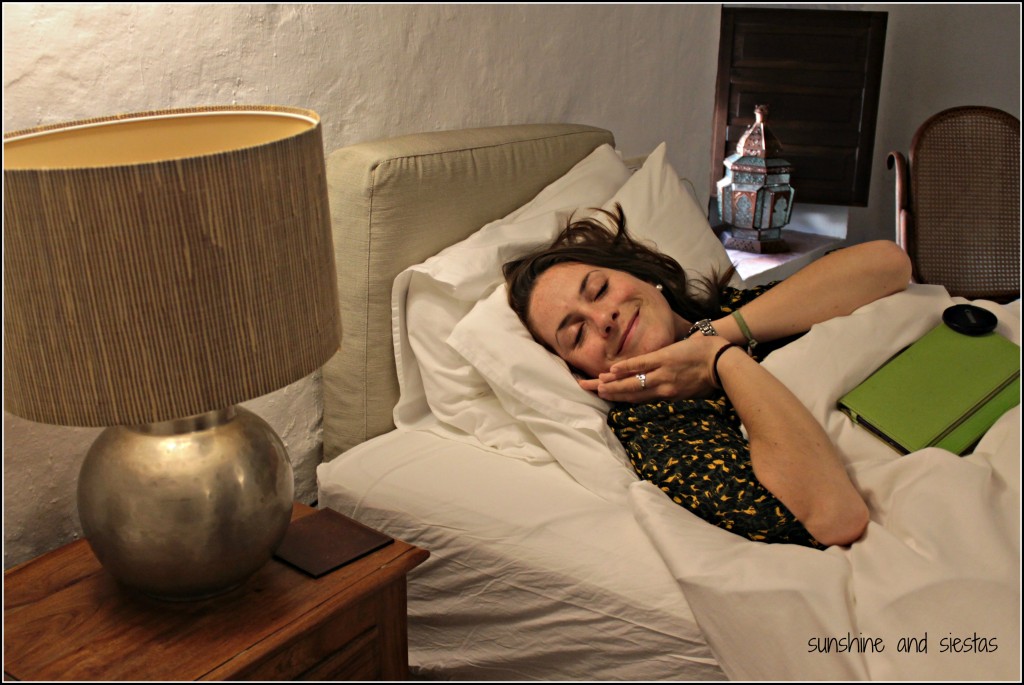
Dreaming of being legal in Spain
In all fairness, I was up against a lot: the arraigo social was a long-shot because teaching contracts tend to be only for nine-ten months. I’d also been out of the Schengen Zone for longer than the allotted time (120 days in three years) and had passport stamps to prove it. I couldn’t denunciar the Spanish government for legally employing me, either. Feeling overwhelmed and in desperate need of 20 minutes in an air-conditioned office, I headed to the U.S. Consulate in Seville (which, by the way, does not do residency or visa consultations for Americans in Spain), and the then-consular agent told me to renew my student visa como fuera.
Thankfully, I’d applied to do a Master’s in Spanish and had an acceptance letter and enrollment certificate. I deferred my enrollment for financial hardship but it had bought me a bit of time to not let my residency card lapse. I’d discover later that you can apply for a TIE card renewal up to 90 days after its expiration, but I was in survival mode (and I seriously doubt that Exteriores even had a website at that time).
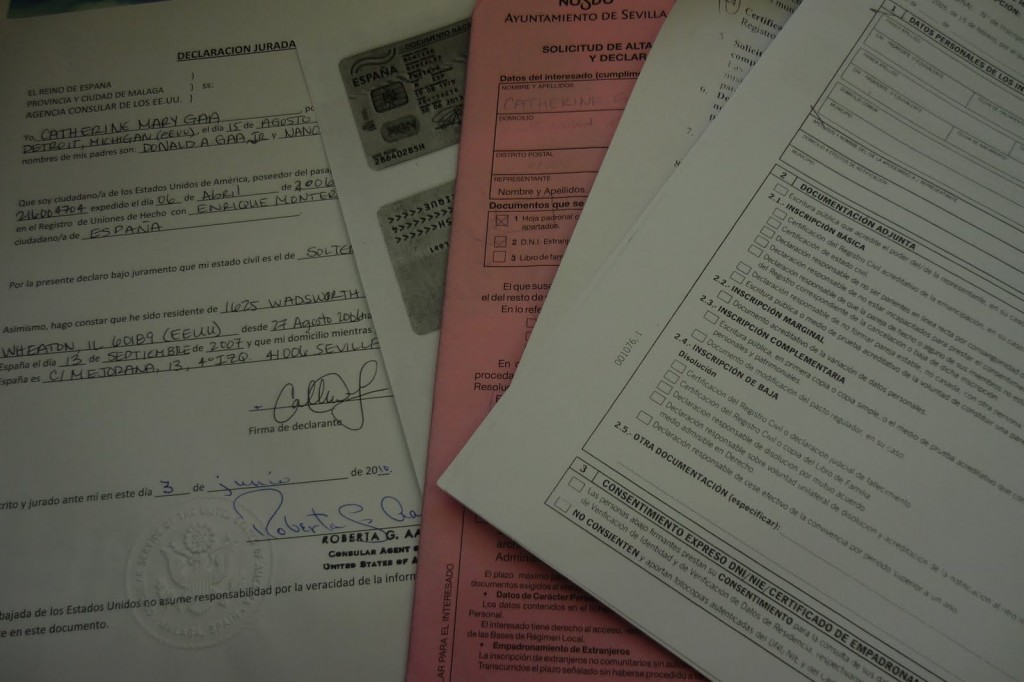
If my house ever catches fire, my mountains of extrajería paperwork means that it will burn fast.
An overnight bus trip later, I stood in line at the Foreigner’s Office in Madrid, only to be told I’d need an appointment. I plead my case, blaming it on the university taking its sweet time to send my documents and the lack of available appointments, and they told me to come back that following Friday. Back to Seville on the six hour overnight bus I went, returning three days later and having registered my padrón certificate with my brother-in-law.
When it was my turn at the eleventh hour, literally at 4pm the day before my residency card expired, I lied through my teeth and said I was going to begin a master’s program. I remember her making some snide remark about sevillanos. As soon as I had the stamp on my EX-00, I long-distance dialed my mom in the US and told her she could transfer all the money, used as proof of financial solvency for my renewal, back out of my bank account.
As all of this was happening, I attended an American Women’s Club tapas welcome party for new members, as I was considering joining anyway. The woman I sat next to casually mentioned something called pareja de hecho. Doing this would make me the de facto executor of the Novio’s will, and would make him my de-facto owner and keeper. I wasn’t cool with that explanation from the funcionario, but I rolled with it because it gave me residency permission, and I could work legally for 20 hours on my student visa.
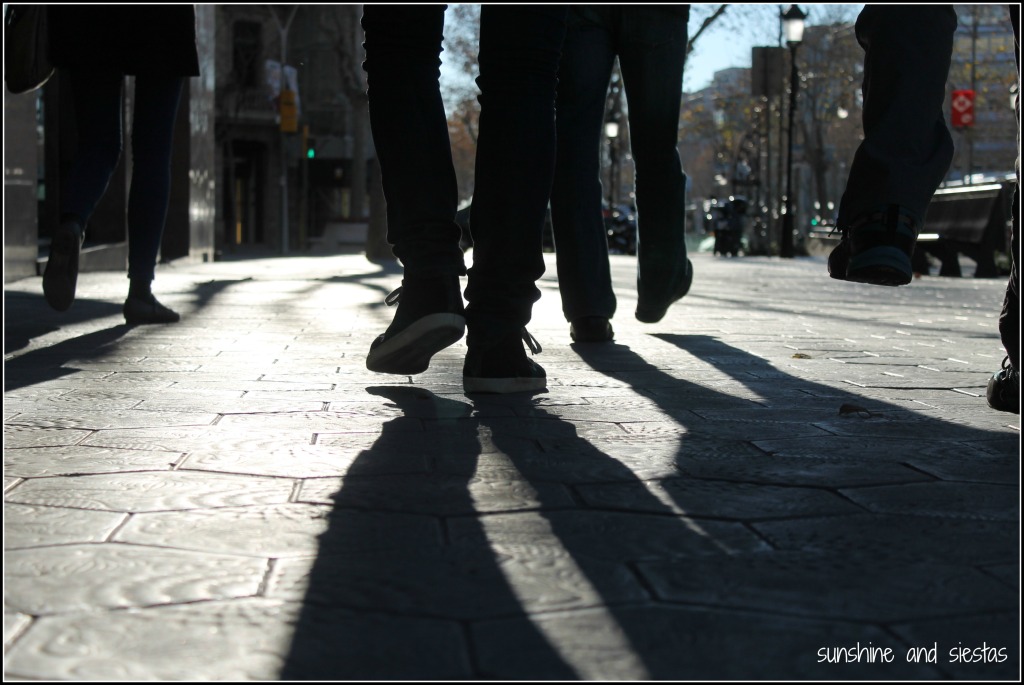
Spanish bureaucracy is no cake walk
And so began the wild goose paperwork chase around Andalucía (including a brief pit stop in Fuengirola, Málaga).
You know the rest – a change in the stable partner laws while our paperwork was processing allowed me to work legally and build years towards permanent residency. But apart from that, it changed my mindset from taking Spain and my life here on a year-by-year basis, and it was a clear sign from the Novio that we were in this for more than just the language goof ups and someone to have a cheeky midday beer with.
So what is pareja de hecho?

Pareja de hecho meant no long distance relationship for the Novio and me.
The closest equivalent to pareja de hecho in the US would be a civil union; in fact, people seeking fiancé visas to the United States usually have undergone the PdH process. Simply put, you have nearly all of the benefits of being married, but without the financial implications (in Spain, anyhow) or the ring.
Pareja de hecho allows the non-EU partner to work and reside legally in Spain, have access to state healthcare and move about the EU without a passport. It’s assumed that your partner will not be your “keeper” but proving financial solvency is an element when you later apply for your residency card, and your finances will stay separate unless you choose otherwise.
Pareja de hecho is also called pareja estable or uniones de hecho.
I want to do pareja de hecho. How can I apply for pareja de hecho / pareja estable?
Want to legalize your love? Pareja de hecho is one way to stay in Spain legally as a non-EU citizen.
But ojo: paperwork and eligibility for pareja de hecho differs from one autonomous community to another. Some, like Andalucía or Navarra, will allow the non-EU partner to be on a student visa or even apply with just a passport, whereas Castilla y León will not. Galicia wins the living-in-sin game, as interested parties must have lived together on a registered padrón municipal for two years or more. Both sets of islands will only let Spanish citizens, and not other Europeans, apply.
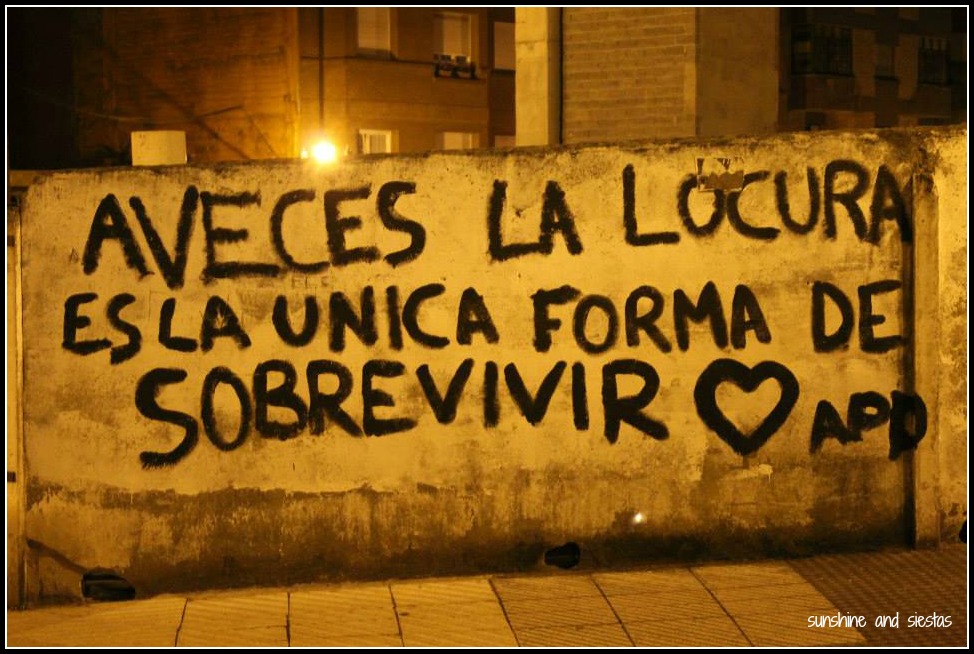
Sometimes, crazy is the only way to survive (in Spain)
To qualify, both members of the party generally have to be 18 or older, not related and able to enter into a legal partnership on your own free will. From there, requirements vary by the community – and sometimes even the province – in which you’re applying. Your local government will have resources about documentation and application process. And don’t forget that once you have your certificate in hand, you’ll still have to apply for your shiny new residency card (tarjeta comunitaria)!
In hindsight, pareja de hecho was probably the easiest bureaucratic matter I’ve had to deal with in Spain – I’m serious. And if you don’t believe me, I co-wrote an eBook about it (use LEGALLOVE5 for a 5€ discount in COMO’s online shop!)!
All’s fair in love and bureaucracy, right?
How did you get into teaching abroad? Do I need to have a TEFL or CELTA to teach in Spain?
I proudly marched off the plane in July 2005 after a summer abroad and announced I’d be moving back to Europe after graduation. My parents even encouraged me to do a year or two abroad.
Ha. Ha. Ha.
Senior year, after the obligatory flippy cup game and textbook buying, I visited the Office of Study Abroad on my campus to ask how to move abroad after graduation; one of the peer mentors told me about the Spanish government’s North American Language and Culture Assistant program, which would allow me to teach 12 hours a week in a public school in exchange for 631,06€ a month, private healthcare and a student visa. I was offered a position in Andalucía two weeks before graduation.
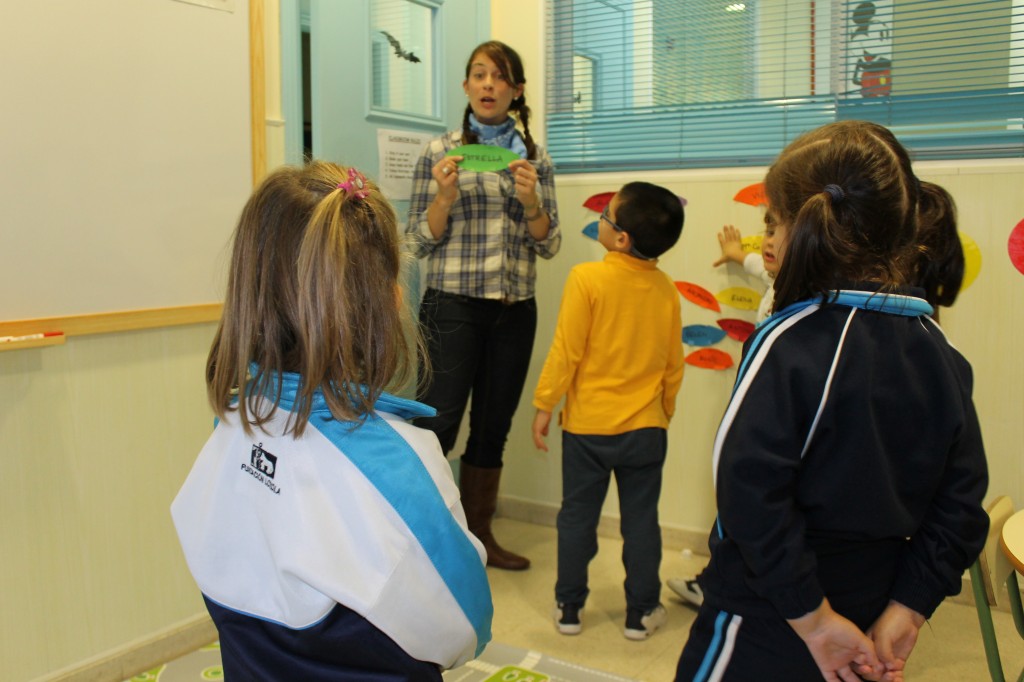
I needed a TEFL certificate to teach at an English academy
The auxiliar program was a positive experience for me, and I found that I was actually pretty good at teaching phrasal verbs and producing gap fills. My coordinator gave me free reign in the classroom, so at the end of my three years, I felt ready to make teaching my career, even going as far as applying for a Master’s in Secondary and Bilingual Education.
Remember all of those hand-written envelopes? I got a few bites, but the work papers was always the snag. When my pareja de hecho lawyer called to tell me I could get a Spanish social security number, I marched right over to the social security office and later that week, caught that damn overnight bus to pick up my residency card. I had a standing job offer and started work as Seño Miss Cat the following week.
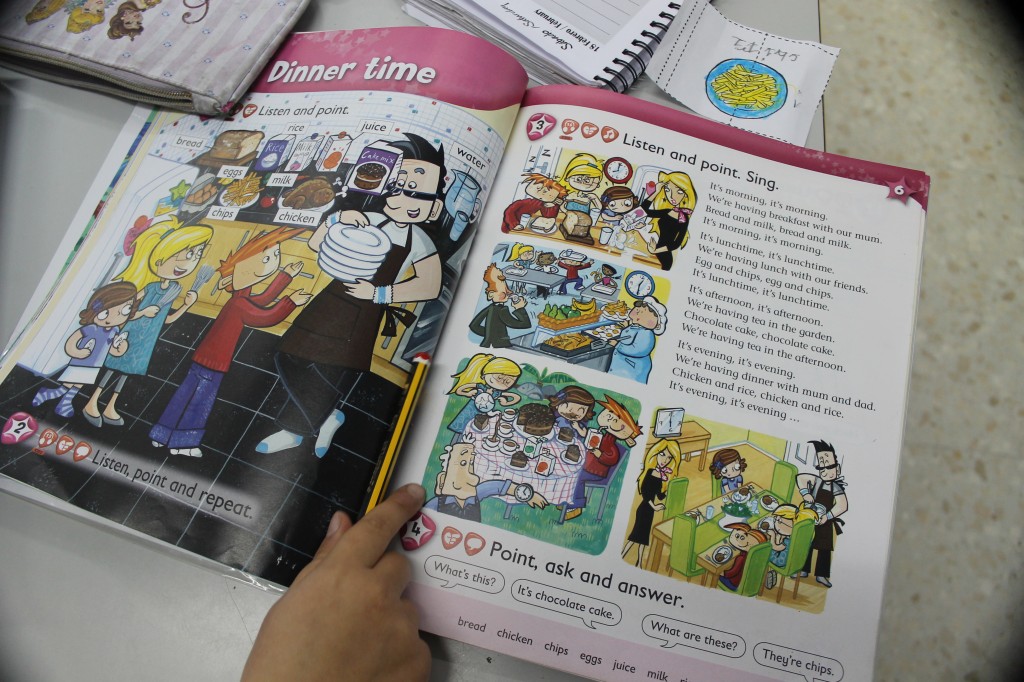
When I left the private school – I was overworked and underpaid, and I didn’t have enough time for blogging and freelancing – I jumped into the English academy world. Having heard horror stories about payment and contract issues, I was wary but needed a way to work while completing a master’s program, so I figured the part-time schedule and academic year to academic year commitment was doable. I was offered the Director of Studies position midway through the year and stayed on until our move to Madrid.
When I get asked whether or not a TEFL or CELTA is necessary, I always give the same advice: if you want to work for a reputable academy, you should have a certificate. Not only does this make you more attractive to an employer, but it gives you footing if it’s your first time in front of a classroom. I agree that experience is the best teacher but Spain is the land of titulítis.

Is a CELTA or TEFL preferred to teach in Spain? While TEFL certificates are king in Asia and South America, many language schools in Spain will require a CELTA (Certificate of English Language Teaching to Adults). There’s good reason for this: the CELTA prepares you to teach the Cambridge Language Exams, which is a language level test that most academies offer.
I don’t really miss teaching as I thought I would, but mostly because I really like what I’m doing now. I do, however, miss my two-month vacation!
What do you do for a living? How did you get into university admissions?
After nine years in the classroom, a Facebook post changed my career rumbo. An American university in Spain was looking for an admissions counselor. I read the job description: people skills, basic computer skills, work permission in Spain. I could handle that. I wrote a fun cover letter, added a picture of myself on the school’s U.S. campus and sent off an email to HR and the Director of Admissions – less than a month later, I had an offer.
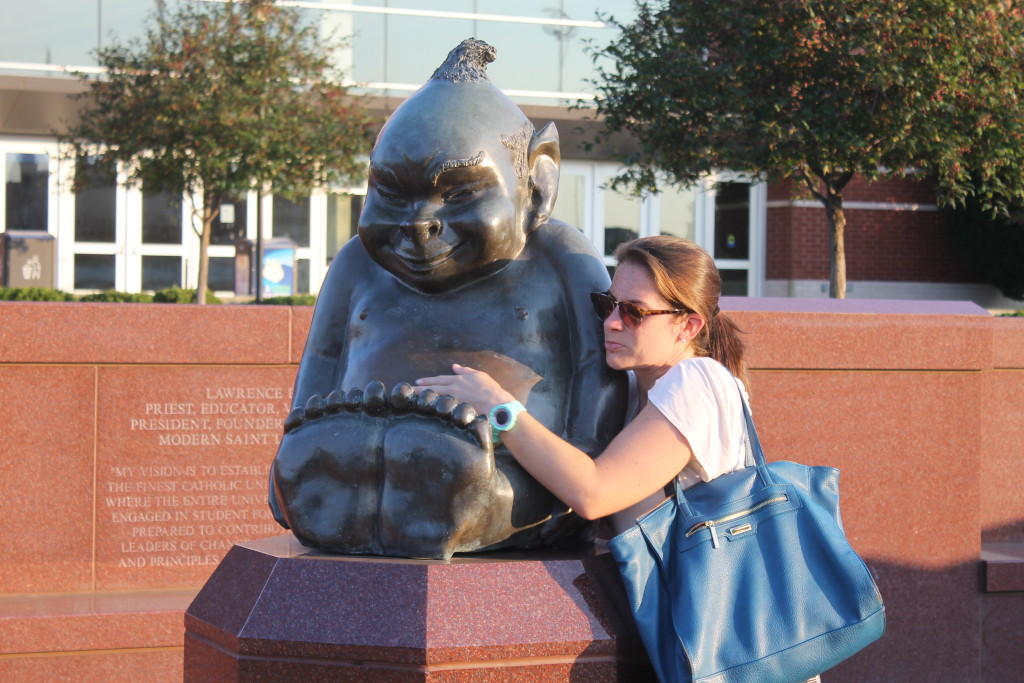
A clue to the institution I work for – from one oddball mascot to the next!
Working for an American-style company (it’s an S.A., which is why I got paid maternity leave and am in the Spanish social security system) is a serious dream. My role includes representing the university in recruitment events in my geographic zone, reading applications, counseling students on visas, and overseeing recruitment and marketing for our graduate programs. It’s a fun challenge, and I’m still in education – and I am using my journalism chops at long last. Like many elements of my life in Spain, patience and perhaps some karma helped tremendously.
Want to get into international student admissions? You should be personable, able to work independently and keep up with trends in enrollment, higher education and whatever social media a teenager would be into. You should also be willing to answer very, very mundane questions. Working for a small, niche school has its challenges, so every enrolled student feels like a win – especially when you met that student at a college fair, set up a campus visit, helped them choose classes, and given them a hug at orientation.
As schools begin to look abroad (Fall 2019’s cohort was born the same year as 9-11, eh, meaning less kids to go around), many universities are amping up recruitment efforts abroad. Even in Spain, think beyond study abroad!
What is your favorite post on your blog?
Sometimes when I hit publish, I am excited to see how my readers react. Most times, I’m like, “cool, cross that off my todoist app” because of the amount of work that goes into a post. Editing photos, choosing the right words and kinda caring about SEO. I can mull for days over how to frame a post – often choosing to wait a year so that it’s timely.
Asking me to choose my favorite post depends on what I have a craving for reading.
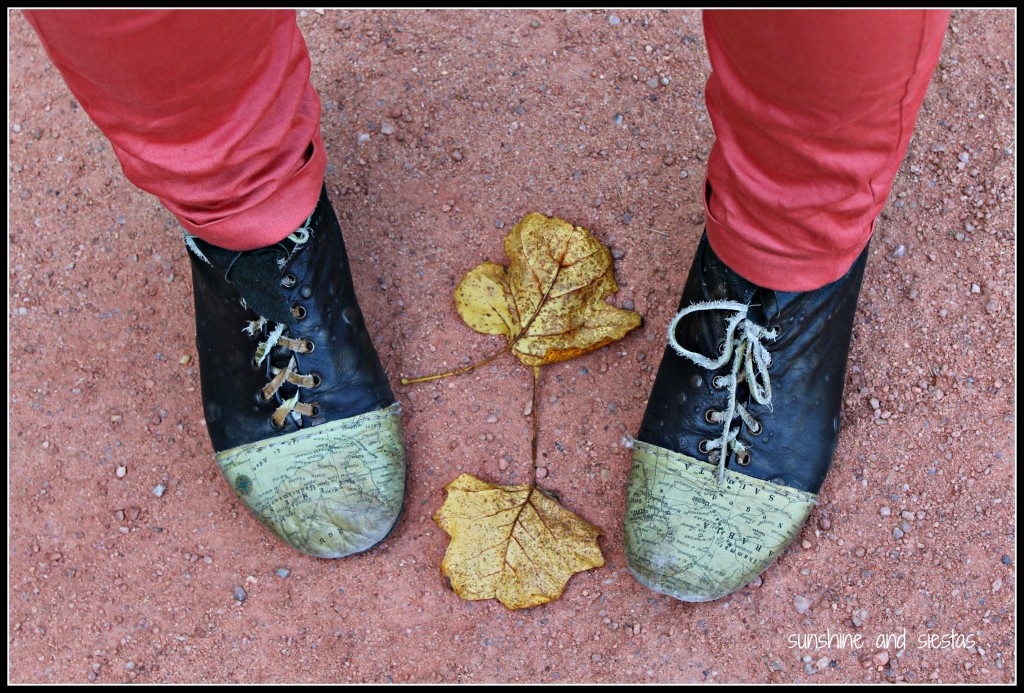
From itchy feet to firmly planted in Spain
Perhaps one of the posts I find myself going back and reading the most is The Guiri Complex (Or, why I Can’t Have it All). Pounded out on a keyboard shortly after an American food store opened in the same storefront where I’d bought a flamenco dress, I was wrestling with more than just an overpriced box of Cheerios and whether or not I wanted it: it was a moment where I was torn between the life I had built in Sevilla, and the life I thought I could have in the U.S.
Curious: do you guys have any posts you particularly like? I’d love to hear them!
What is the Novio’s real name?
I recently met up for a beer (well, like a dozen) with Joy of @joyofmadrid. As soon as we’d sat down, she said, “I’m so glad we can skip over the basics because we already know one another.”
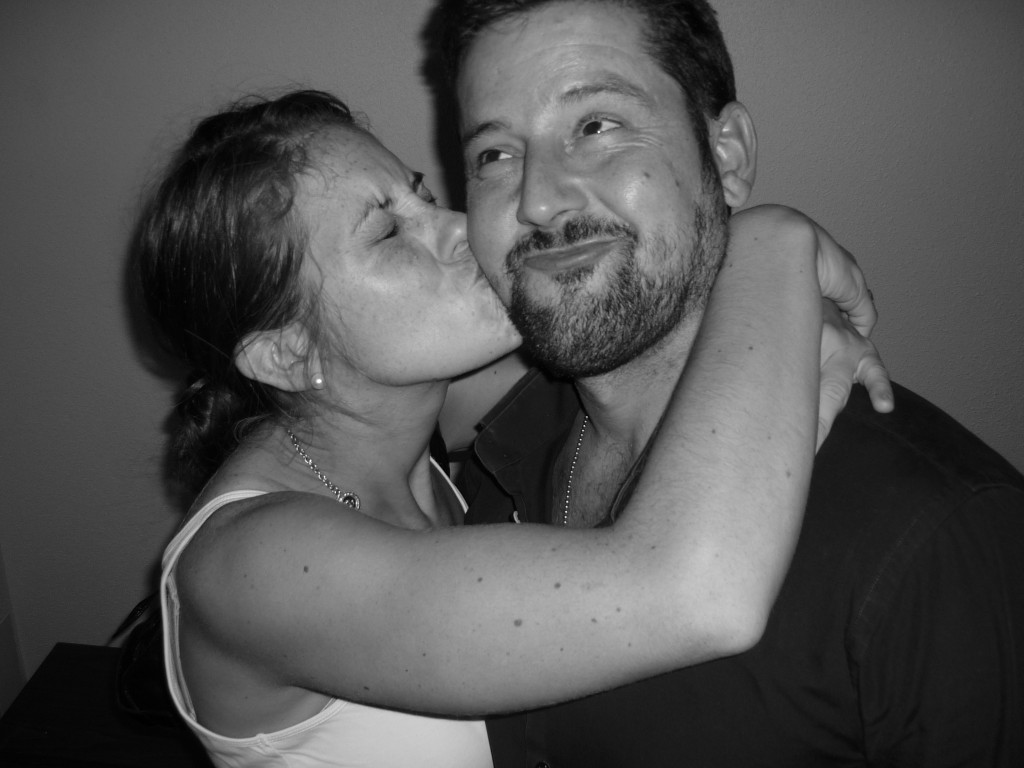
Ah, youth. This was eight years ago.
I’m not exactly a public figure, but I realize that people know who I am, what I do and where I like to have a caña. But my husband is an extremely private person and someone who is not into social media, internet cookies (or regular cookies, actually) or sharing his personal life. I can respect that, and for this reason he shall remain nameless.
And, no, I did not move here for the Novio. But he’s part of the reason I stayed.
Will you ever return to the U.S.?
Great question. While I don’t want to close the door to returning to live in the land of cooking with butter, I don’t see it happening. Where would the Novio get his hueso salao for puchero? How could I ever go back to not having health insurance? It’s not impossible, but I think it’s unlikely.
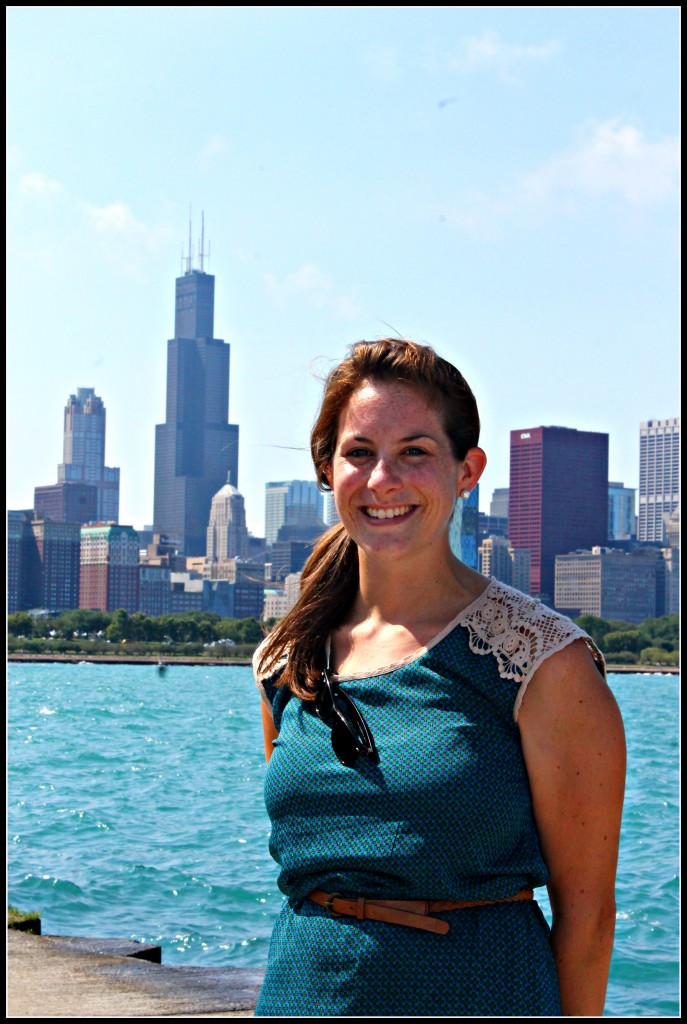
Still my favorite place in the world.
Truthfully, moving to the US freaks me out – the staggering cost of living on meager savings, starting a job search from abroad, letting go of my Spanish lifestyle. The dream would be an American salary in Spain, but everyone makes sacrifices, right?
Cruzcampo is not one of those sacrifices.
If you didn’t live in Seville, where would you live? Where should I live?
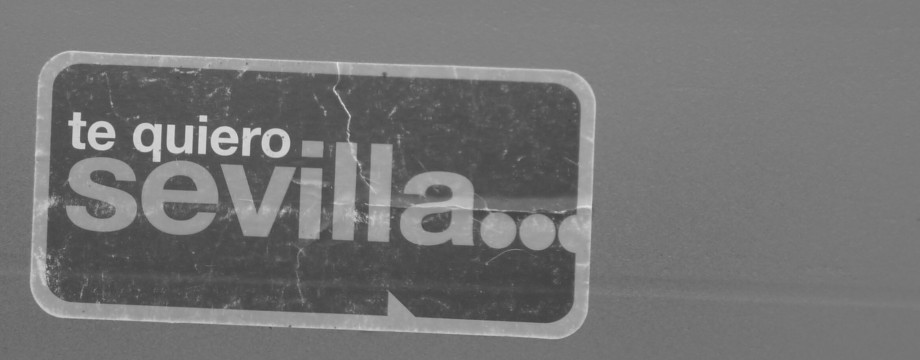
I always said that if I didn’t live in Seville, I’d live in Madrid. And now that the Spanish capital is “home,” I’d choose Seville again. It truly is la ciudad de mi arma, even with its faults (and that reminds me – I really love my break up post).
When I announced via Facebook that I’d be leaving Seville for Madrid, one commenter warned me of how soulless Madrid felt to her. My friend Lindsay, who has lived in both cities put it best (and I love her for it): Cat can find her people and her home anywhere.
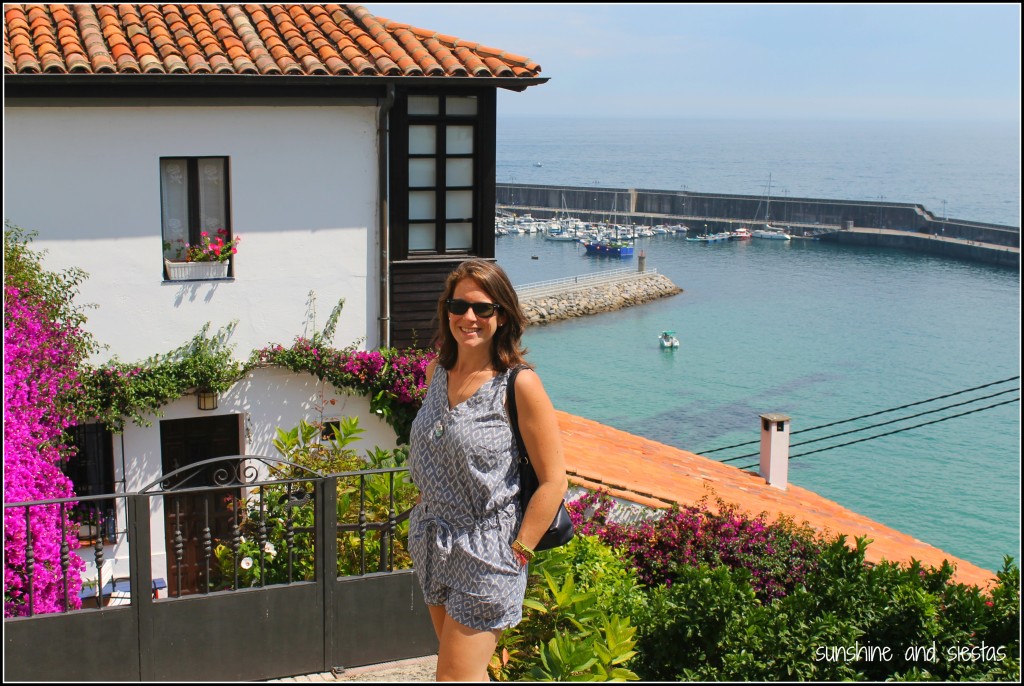
But if I must choose – I really love Asturias and could see myself up north with a bouganvilla-covered house in a little fishing village near where the Novio summered. Send rebujito if this ever happens.
What are your tips for making friends abroad?
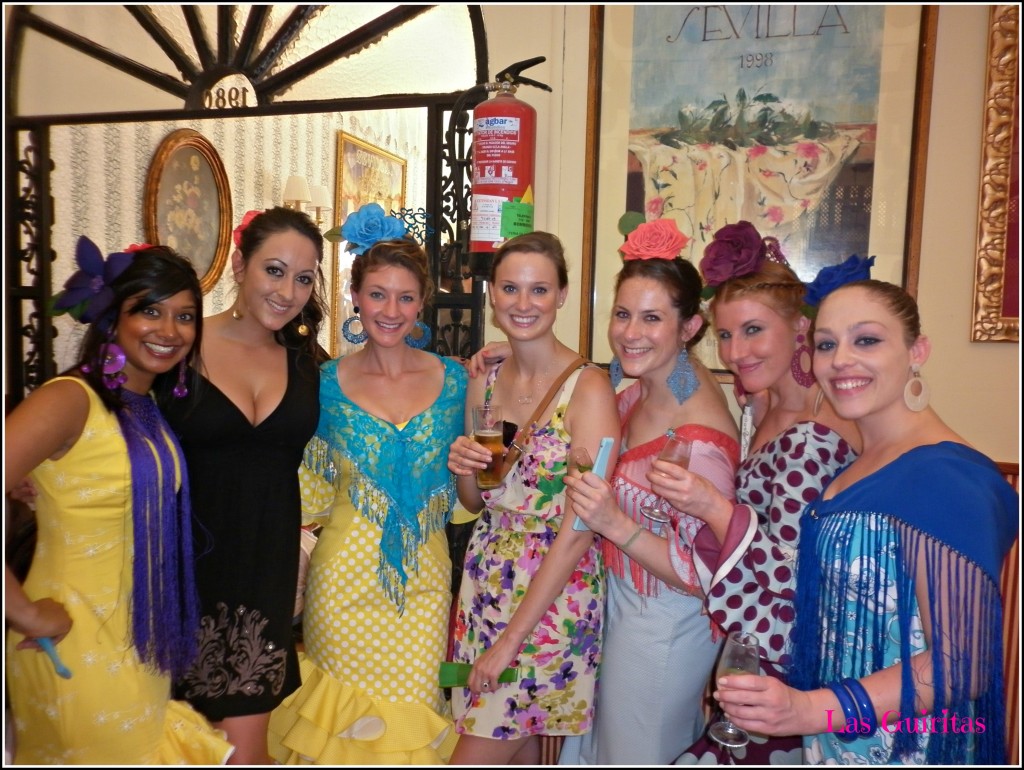
Currently in Sevilla, Denver, San Francisco, New York, Madrid, Sevilla and Jakarta, but forever in Calle Bombita
Saying that the friends I made in Spain are half of my Spanish world would be an understatement. There’s an affinity that we have, as Americans, that extends beyond our shared language and culture. My group and I have left home for Spain – sometimes for the adventure, sometimes for a novio. Most of them had studied abroad in Sevilla (everyone in the photo but me, in fact!) and most of us arrived in 2007.
Had I not met the women I call my Spain Dream Team, there’s a fairly large probability that I wouldn’t have stuck around. The Novio often traveled for work abroad for long stretches of time, so I wizened up and found a group of women about my age who planned on Spain long-term. Little by little, my small circle of sevillamericanas has grown (but not without a few hard bajas).
Remember how your parents told you to leave your dorm room door open during your first week of college? I did that, too, but figuratively. I never turned down an invitation, but in an age where social media was as creeperific, I spent a lot of time at home with a box of Magnum bars.
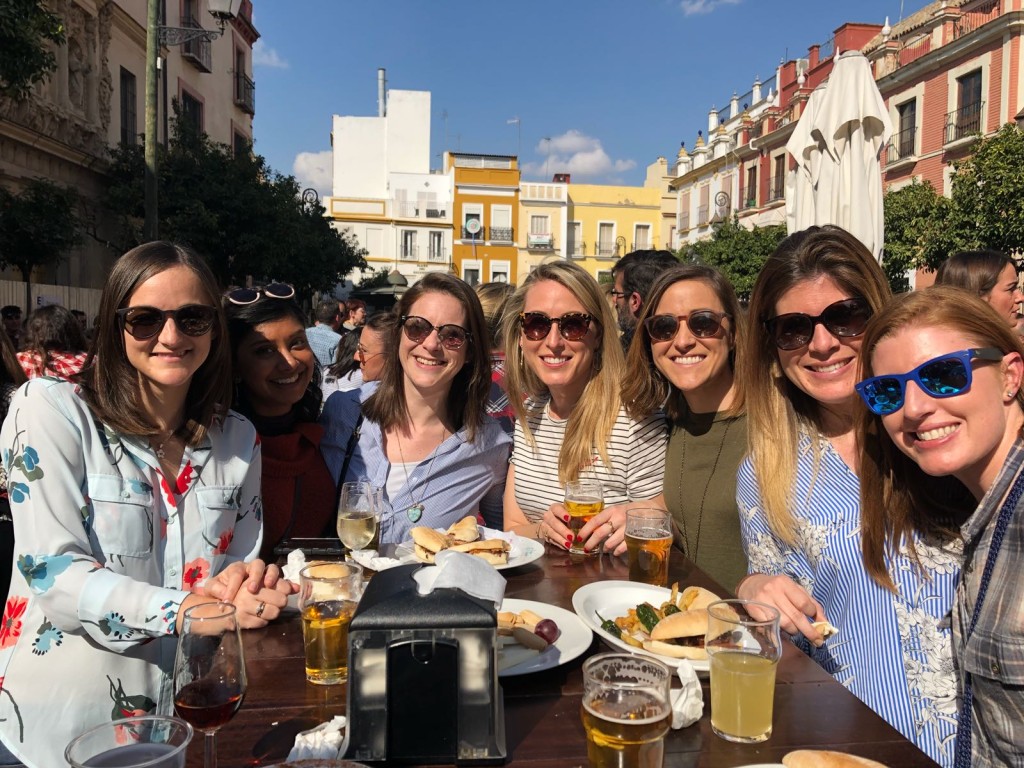
I solemnly swear that we are up to no good.
When you’re looking to meet friends abroad, consider what you’re already into doing – there are meet ups for everything from hiking with kids to knitting. If there’s a local expat group, go to an outing or two, or at least tap into their resources. Of those pictured above, most of us met be being introduced by someone else – ask for introductions and don’t think it’s weird (we’re literally all in the same situation, or have been!). Don’t be afraid to invite people for a coffee – I used to drag my German roommate to a cuchitre bar on our street to practice Spanish, and a cook at one of the tapas bars near my house and I kept in touch (and he opened a new bar recently!).
Advice on when friends move? In the picture of us dressed in trajes de gitana – one of my favorites – only three of us are still in Spain, but we’ve seen one another at least once in the last two years. A part of me dies when one of my friends announces that she’s moving away from Spain and I have ZERO advice other than whatsapp.
Do you have any advice for someone moving to Spain?
After my first year in Spain, I returned to my summer job at an outlet mall in suburbia. Tasked with folding rows of chinos and steaming dress shirts at Banana Republic, I struck up a conversation with an American who had just returned from 17 years in Galicia. As I found her sizes and zipped up dresses, she reminded me, “Spain will change you. No vuelvas just yet.” Seventeen years seemed like an awful long time to be away from my family, my language and my culture, but I assured her I’d stay another year.

I’ve never forgotten that milestone. By the time I’ve been here 17 years, I will have probably had another kid, maybe moved again and who knows what else. If someone had told me that I’d fall for a Spaniard when abroad, I would have believed them. Had someone told me I’d live my adult life here? I wouldn’t.
I’m often asked what I’d do differently. Truthfully, not too much. Maybe I would have tried harder on this blog, or tried harder to make more professional connections earlier. Maybe I would have saved more money. I probably would have paid a little more money for an apartment with air-con because, damn, Sevilla is hot. But in the grand scheme of things, I’m pleased with how things have gone – even those hours, sitting in the dark eating Magnum bars when I had no friends.
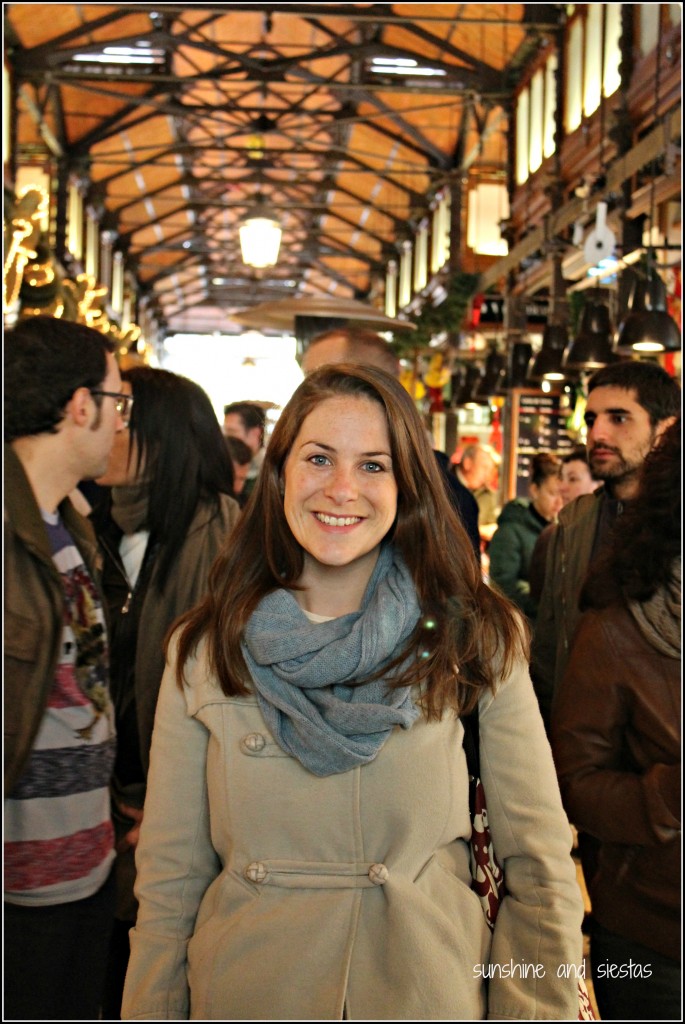
My advice? Remember that it’s not your home country, so nothing will be the same. Spanish customer service is pitiful, traffic is just as bad as in the US but with crappy radio. Life is life in Spain, but as they say: Spain is different. Not a good different of bad different, necessarily.
Just different – and fun, challenging, enriching and delicious. Here’s to 11 more!
Any other burning questions for a long-term expat in Spain?
This post contains links to my residency blog, COMO Consulting Spain, including links to our online shop. Have a click on any of the links to learn more about how to move to and work in Spain. We were recently hacked, so every click makes a world of difference (and we put a humorous spin on Spanish red tape!).

